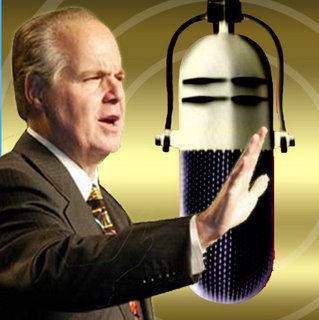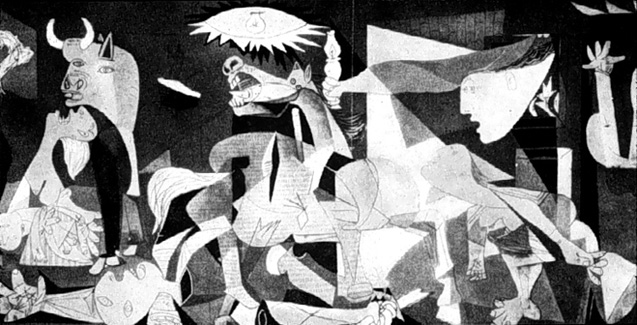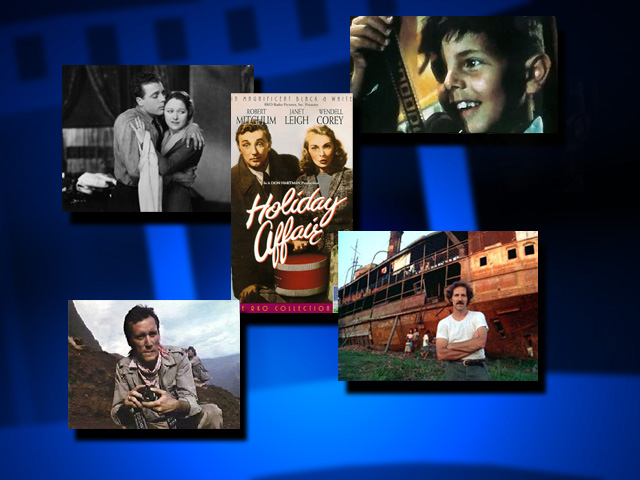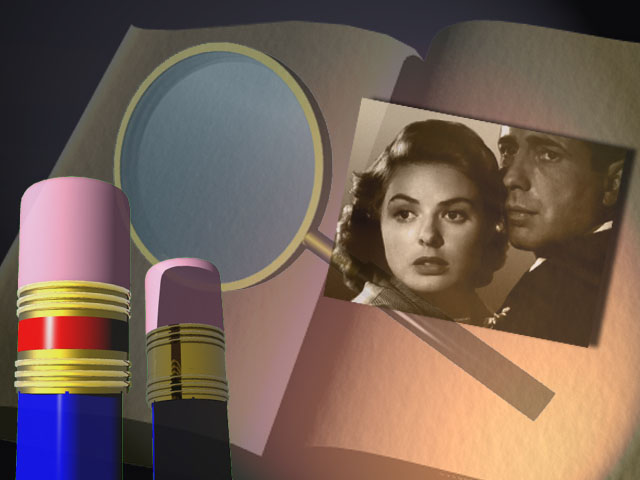 According to a recent Washington Post article, Americans are becoming more and more socially isolated. Since 1985 the number of close personal relationships Americans keep have dropped from three to two, many times one's spouse being their only confidant. This trend predates the "me" decade, however. The popularization of television in the '60s fractured communities into 3 to 5 person cells then, with the surge of the PC in the '80s and '90s, those cells shriveled even further. Our technology appears to be robbing us of our time and susequently our friendships. What's worse this may have degraded the little time we do spend interacting. No family picnics. No dance lessons. No softball practice with co-workers. Pulling the kids away from myspace to watch "According to Jim" with the family or playing "Grand Theft Auto" instead of bowling now qualifies as an acceptable interactive activity. I'd like to think this is just a transition, that somewhere down the road we'll regain control. But as things are our fences are too high and monitors too blinding.
According to a recent Washington Post article, Americans are becoming more and more socially isolated. Since 1985 the number of close personal relationships Americans keep have dropped from three to two, many times one's spouse being their only confidant. This trend predates the "me" decade, however. The popularization of television in the '60s fractured communities into 3 to 5 person cells then, with the surge of the PC in the '80s and '90s, those cells shriveled even further. Our technology appears to be robbing us of our time and susequently our friendships. What's worse this may have degraded the little time we do spend interacting. No family picnics. No dance lessons. No softball practice with co-workers. Pulling the kids away from myspace to watch "According to Jim" with the family or playing "Grand Theft Auto" instead of bowling now qualifies as an acceptable interactive activity. I'd like to think this is just a transition, that somewhere down the road we'll regain control. But as things are our fences are too high and monitors too blinding.
Friday, June 30, 2006
Tuesday, June 27, 2006
Monday, June 26, 2006

Earlier this month the music industry mourned the loss of one of their greatest forces of nature, Billy Preston. Preston had an unprecedented career, playing with everybody from Nat King Cole, at the age of 10, to the Red Hot Chilli Peppers. He was even called "The Fifth Beatle" for his work on "Let it Be," his appearance playing piano on "Get Back" for the Fab Four's rooftop performance and developed a lasting friendship with George "the quiet one" Harrison. Not only did he garner noteriety with the Beatles but Preston went on to play with the Rolling Stones and recorded with Ray Charles on his last album. A true talent who will be missed.
Performing "That's the Way" with Harrison
Sunday, June 25, 2006
There's a psychologist out there who goes by the unfortunate name of Mihaly Csikszentmihalyi. But  don't let his unpronouceable name fool you, he's all about fun, actually he's all about placing fun under a microscope and dissecting it. Csikszentmihalyi, in 1994, published a book entitled Flow: The Psychology of Optimal Experience in it he defines a new phenomenon that connects the common thread running through the various types of fun humans experience. Definition of flow: the sensation of exhilaration one feels when engaged in an activity for the activity's sake, not to attain some tangible result. The example he uses is of a painter who encounters the greatest joy during the period when his work is taking shape but places his work aside when that "shape-taking" process is over. What is peculiar about this is the painter doesn't do this because he wants his art displayed in a gallery, he does this because he enjoys the act of painting. This essay explains flow in greater detail. It seems to me that Flow: The Psychology of Optimal Experience is a progenitor to a recent, more popular work called Blink: The Power of Thinking Without Thinking by Malcolm Gladwell. Both contend that stored in our mental toolboxes are tools everybody can access to improve their lives if they just wish to sit down and take the time to acquire the necessary skills. The two concepts, in my mind, are quite motivational and life-affirming.
don't let his unpronouceable name fool you, he's all about fun, actually he's all about placing fun under a microscope and dissecting it. Csikszentmihalyi, in 1994, published a book entitled Flow: The Psychology of Optimal Experience in it he defines a new phenomenon that connects the common thread running through the various types of fun humans experience. Definition of flow: the sensation of exhilaration one feels when engaged in an activity for the activity's sake, not to attain some tangible result. The example he uses is of a painter who encounters the greatest joy during the period when his work is taking shape but places his work aside when that "shape-taking" process is over. What is peculiar about this is the painter doesn't do this because he wants his art displayed in a gallery, he does this because he enjoys the act of painting. This essay explains flow in greater detail. It seems to me that Flow: The Psychology of Optimal Experience is a progenitor to a recent, more popular work called Blink: The Power of Thinking Without Thinking by Malcolm Gladwell. Both contend that stored in our mental toolboxes are tools everybody can access to improve their lives if they just wish to sit down and take the time to acquire the necessary skills. The two concepts, in my mind, are quite motivational and life-affirming.
Saturday, June 24, 2006
Thursday, June 22, 2006
This'll make you happy, Pitchforkmedia posted their 100 Awesome Music Videos. And, yes, Journey did make the cut.
Wednesday, June 21, 2006
 The most effective weapon at the disposal of any established power does not rely on triggers or gunpowder, it has nothing to do with rods or reactors, and no arsenal or stockpile will impede its influence. This mightiest of all weapons is language and can be more manipulative than any nuclear bomb.
The most effective weapon at the disposal of any established power does not rely on triggers or gunpowder, it has nothing to do with rods or reactors, and no arsenal or stockpile will impede its influence. This mightiest of all weapons is language and can be more manipulative than any nuclear bomb.
Most Republicans have mastered the art of fear. Convincing the majority of people the real threat is from an irrational, power hungry minority produces an ideal bogeyman for mobilizing the public. The story told is liberals, after years of political defeat, have installed a phantom power structure that circumvents traditional jurisdictional protocol. What are those alleged phantom liberal power structures you ask: the colleges, the media and the courts.
As for the colleges, I'm not surprised many world-is-flat conservatives experience an aversion to ideas that challenge their beliefs. The appointments of Judge Roberts and Judge Alito - who has been the deciding vote in restricting Whistleblower protection and expanding the control of the police state by not requiring officers with search warrants to knock before entering private residences - prove this characterization of our courts to be inaccurate. And as for the liberal stranglehold on the media consider this - Fox News and talk radio are granted an around-the-clock platform for off-the-cuff and outside-the-facts pontification. Where is the liberal response? Plenty of sobering progressive voices exist - Noam Chomsky, Howard Zinn, Gore Vidal - but their messages never break into the zeitgeist, leaving us with a one-sided conversation.
At this point, it is important to remember with November mid-terms approaching and with conservative rhetoric becoming more cunning their position of power is not their birthright. With the right amount of planning and organization liberals can achieve the same end. We must speak the truth louder and combat their bullying, be on the ready to neurtalize their talking points (which shouldn't be hard, they parrot each other enough). I do recognize that Democrats are not all that different from Republicans, but I would be hard-pressed to find a Republican counterpart to Murtha or Feingold.
Monday, June 19, 2006
Saturday, June 17, 2006
The other day I was wandering through Barnes and Noble looking for the latest book about Spinoza - "The Heretic and the Courtier," can't wait to read it - and I stumbled across a series of books called 1001...You Must...Before You Die. The title inspired me to make a list of my own. So here are my top 5 movies you positively must watch before you die.
The Crowd (1928)-
When John or Joan Q. Moviegoer thinks of silent films two things usually come to mind: 1) that silly looking, Hitler 'stached fellow with the funny walk and 2) those movies are more boring than watching piss cool. The latter point is true for some of the movies of that era, but can't the same be said of today? This film is a sterling example of the merriment contained in these nearly forgotten treasures. King Vidor, director of The Crowd, had a sharp sensibility and, much like Ernst Lubitsh, had his own "touch." The plot is simple, it chronicles one man's life from birth to adulthood with all the hills and valleys of the journey. The film impresses without being showy. Sure there's lessons on the futility of the American dream, man's struggle to reconcile his dual nature and what happens to faulty cogs in the grand social machine, but that's all there only if you want. On the surface it's a sturdy portrait of an American family brimming with poignancy and warmth. Whichever level you choose to view it you'll walk away smiling/thinking.
Holiday Affair (1949) -
What word best describes this movie? Cute? It is definately that yet there's something more to it. Rollicking? Robert Mitchum, Janet Leigh and a mischievous youngster surely deliver a lively jaunt through New York, but that doesn't quite pin it down. Ah, I got it - ingratiatory. You can't dislike this movie, it won't let you. Leigh is sprightly as a widow with a young boy, Gordon Gerbert, who receives a toy train from Mitchum's character as an unselfish act of Christmas cheer. It's a shame Holiday is only played sparsely during the Christmas season while so many others are rerun ad nauseum on seemingly every network. This year try replacing A Christmas Story (you can recite all the good lines from memory anyway) and It's a Wonderful Life with this smaller picture.
Burden Of Dreams (1982) -
Think of that one thing you've always wanted in your entire life, the thing that would make life worth living. Winning the lottery. Finding your dream home. Having a threesome. This is a movie about that. The subject of this documentary, director Werner Herzog, will do whatever neccessary to film his movie, Fitzcarraldo, in the Amazon jungle. Trouble threatens his project from all sides, from a tantrum-prone star, Klaus Kinski, to the perils of the wilderness. The sequence with the Amazonian tribesmen pushing and pulling Herzog's massive ship up a slick, muddy incline will never leave you. I'll let you supply your own Sisyphean metaphor.
Salvador (1986) -
How Salvador was born: First, Oliver Stone heard a Chomsky lecture. Second, Stone took a filmcrew down to El Salavdor. Lastly, Salvador is released and tanks at the box office. Don't let that scare you, though, the movie far surpasses the sum of its parts. Starting as a fun travelogue the mood stops on a dime and sucker punches you with the stark brutalities of Central America in the 1980s. Never didactic or condescending, its sole aim is to report through the lens of opportunistic photojournalist and famed alcoholic, Richard Boyle. This is the news that never was, at least for Americans. A whole new perspective of Reagan's legacy emerges by the end. Before Stone became the master of bloated epics he made this taut distillation of American foreign policy. Absolutely peerless.
Side Note: Look for Jim Belushi giving a career-defining performance as James Woods' second banana.
Cinema Paradiso (1988) -
Wednesday, June 14, 2006
Students have been downloading a high-pitched ring tone that can't be heard by anyone over the age of 20, allowing the students to send and receive messages during class. Wanna hear for yourself? Maybe I'm out of touch, but it's just not as catchy as Sean Paul or the Black-Eyed Peas. Give it a try and see if you can hear it. If you can't, grab a kid or two from the neighborhood and play it for them. If they start shrieking in pain you'll know it works. Originally, the technology was used to scatter crowds of teens loitering outside convenience centers, sorry Jay and Silent Bob. At this rate Metal Machine Music will be topping itunes.
Tuesday, June 13, 2006
Monday, June 12, 2006
 In recent weeks the Ku Klux Klan has experienced an upsurge in their numbers. The reason for this sudden boost can be found stringing barbed wire across fence posts on America's southern border. It's no secret the "minute men" have attracted the attention of many greasy characters, including the nefarious members of the KKK and like-minded Neo-Nazi groups. Through public demonstrations such as anti-immigration marches racists piggyback their less palatable positions on this hot button issue. While conservatives smokescreen the debate by nit picking about illegals being called "immigrants" instead of the preferred designation of "aliens" in print and on television the truth is best obtained through what is omitted. At best illegal immigrants are portrayed as parasitic and at worst, pernicious. A few facts that have failed to surface as a sufficient rebuttal to the tide of hysteria: 40% of illegal immigrants crossed the border legally but became illegal by allowing their visas to expire, the unemployment rate rises and falls regardless of illegal immigration, NAFTA is the primary force pushing Mexicans into America. By squelching informed national discourse on this issue the barrier partitioning the majority of diversity-embracing Americans and head-in-the-sand racists is deteriorating. Therefore it should not be surprising that a gradual increase in anxiety benefits hate groups who are animated by such imaginary fears.
In recent weeks the Ku Klux Klan has experienced an upsurge in their numbers. The reason for this sudden boost can be found stringing barbed wire across fence posts on America's southern border. It's no secret the "minute men" have attracted the attention of many greasy characters, including the nefarious members of the KKK and like-minded Neo-Nazi groups. Through public demonstrations such as anti-immigration marches racists piggyback their less palatable positions on this hot button issue. While conservatives smokescreen the debate by nit picking about illegals being called "immigrants" instead of the preferred designation of "aliens" in print and on television the truth is best obtained through what is omitted. At best illegal immigrants are portrayed as parasitic and at worst, pernicious. A few facts that have failed to surface as a sufficient rebuttal to the tide of hysteria: 40% of illegal immigrants crossed the border legally but became illegal by allowing their visas to expire, the unemployment rate rises and falls regardless of illegal immigration, NAFTA is the primary force pushing Mexicans into America. By squelching informed national discourse on this issue the barrier partitioning the majority of diversity-embracing Americans and head-in-the-sand racists is deteriorating. Therefore it should not be surprising that a gradual increase in anxiety benefits hate groups who are animated by such imaginary fears.
Friday, June 09, 2006
Not quite drunk enough but still too damn sober, I sprung out of bed and wiped the blood from my eyes. It was late evening or early dawn. I found the half-empty bottle of vodka at my bedside and took a swig.Chadwick Twitchell ripped the page from the typewriter, contemplating its fate. Shred it, burn it or cast it into the sea? His editor would hate it. Chadwick’s characters, particularly his protagonists, were never sympathetic enough. In past novels Chadwick assigned tragic flaws to each of his private detectives, making some of them single dads, cripples, orphans or amputees. He was only inches away from giving his latest creation a malignant tumor just so he didn’t have to listen to his editor’s well-practiced dissertation on knowing one’s audience. It’s a sad day when a creator hates his creation.
The parrot in the corner fanned his wings and squawked and rattled the door of his cage with his foot, stopping briefly, pleased with the sound of his own dissonant notes.
I touched my dripping temple. A gunshot? No, I’d be fertilizer by now. A knife wound? Perhaps, but not likely. Maybe some wiseacre just clubbed me, it’s happened before. In any case the gash spurted blood over my face and hands, and if I didn’t patch it up pronto I’d have a snowball’s chance of surviving ‘til sun up.
I ran a fingernail over my eyebrows, scraping off stubborn flakes of blood. I grabbed a washrag and scrubbed it from my forehead, then bandaged the wound with gauze I kept in the medicine cabinet. A few pills of codeine rattled in a bottle spinning on its side on my bathroom counter. I shook the bottle next to my ear before gulping down the remainder with a mouthful of vodka.
Memories returned in flashes: a leggy broad in lacey guarders, a hundred-year-old wax cylinder, and a single name -- Buddy Bolden.
He threaded a blank page through the typewriter, imagining a new scenario.
Typing:
“What were you doing in the wash closet last night?” My mother asked over a freshly brewed pot of Colombian java.Chadwick crumpled the page and lit it on fire. Time to get serious.
“Vomiting, I think. There was some blood in it this time. I should probably stop accepting sex as payment from my leggy, blonde clients all of whom are politician’s daughters with hips wider than the Rocky Mountains desperately seeking revenge against old flames who have compromising photos in their possession.”
“That’s nice, Dear. You didn’t get any on the curtains, did you?
Chadwick remembered something his editor had said. “Did you know that most ‘scan’ buttons on most car radios switch within four seconds. Four seconds, Twitchell. That means a song has to grab one’s attention inside four seconds. This is a sound bite culture, and we’re a nation with ADD.” He was referring to Chadwick’s sprawling, run-on sentences, which required pruning before any major publishing house considered him marketable.
“Oh, yeah, what’s with the whole ‘human dilemma’ bit, Chaddy? I thought we’re in the business of selling books. Consider ratcheting up the gore a crumb and cutting that heady, academic bullshit. Remember, they love guts and carnage, not radical self-indulgent rambling. Of course you’re the artist, but think about it, okay?”
Chadwick took a familiar book from the cedar shelf. It was thick, about 650 pages give or take with microscopic print. Chadwick’s novels were always between 210 to 230 pages with indecently large typeset. The back cover compiled some glowing reviews of the novel most of which tossed around words like essential and classic. A stunning indictment of American pop culture, went one review by J. Roberts Stevenson, Jr. Both cathartically hilarious and concisely morose. This capsule of Spanish-American life is easily swallowed.
Needless to say Chadwick owned one of five copies ever published. All this book needed was a protagonist with a malignant tumor and an appearance on Oprah’s book club for it to be a mainstream success.
“Keep the killings abundant and the sentences short,” his editor had said, “and you’ve got a best-seller.”
Monday, June 05, 2006
Many tend to believe art is separate from science, a retreat from the rational for the purpose of entertainment, but this is not true. Art, of any and every variety, follows an inner logic which, if not respected, will cause the artwork to limp instead of dance. Symmetry and precision can be measured objectively and dictate much of what is considered pleasing or “beautiful” in a piece. But is this art’s highest aim? Or can and should art generate a wholly different type of response? If art should stay beautiful then what should be done with the Whitmans and Picassos of the world? Walt Whitman, whose untamable free verse delivered writers the world over from the ironclad shackles of tradition, and Pablo Picasso, the Spanish powerhouse, absorbed the world, scrambled it and placed it, in all its hideous splendor, on canvases for the world to see. These two artists took the safety of their respective mediums and purposefully altered their natural balance and properness inherited from past generations in order to create an experience that is uneasy, perhaps even ugly, but consistently uplifting.
In his time, Whitman’s sizeable achievements were eclipsed by the work of his more popular contemporaries. While Edgar Allan Poe terrified his readers with gothic tales filled with menacing characters and cryptic landscapes, critics were labeling Whitman’s poetry as “barbaric.” The similarly bearded Henry Wadsworth Longfellow elevated his many stanzas to the epic heights of the mountains he wrote about, but Whitman kept his work on the ground, gearing every word toward the common, working-class man. Whitman wrote so the very people he celebrated could understand what was being written.
Much like Whitman’s disregard for the refinement of his era, Picasso simultaneously absorbed and  rejected the techniques of the past. Even in his formative years, his control of the brush and sense of the surreal was apparent. Instead of studying during math class he would doodle, turning sevens into upside down noses. In the years that followed, Picasso would prove that art did not have to be beautiful in order to be powerful, sometimes both eyes would be placed on the same side of a subject’s head, or several fragments of a painting would collide or clash creating a “collage” effect (cubism). In his boldest political statement, and arguably one of his overall finest expressions artistically, Picasso broadcasts his outrage at recent violence in Spain through “Guernica.” A black and white painting, the barely human figures overlap, producing a sense of immediate chaos. Their mouths are open; they’re shrieking, faces filled with agony. A mother is at the far left of the scene, cradling her dead child, a subtle nod to Michelangelo’s “Pieta” where the Virgin Mary is portrayed holding Jesus’ lifeless body in her arms.
rejected the techniques of the past. Even in his formative years, his control of the brush and sense of the surreal was apparent. Instead of studying during math class he would doodle, turning sevens into upside down noses. In the years that followed, Picasso would prove that art did not have to be beautiful in order to be powerful, sometimes both eyes would be placed on the same side of a subject’s head, or several fragments of a painting would collide or clash creating a “collage” effect (cubism). In his boldest political statement, and arguably one of his overall finest expressions artistically, Picasso broadcasts his outrage at recent violence in Spain through “Guernica.” A black and white painting, the barely human figures overlap, producing a sense of immediate chaos. Their mouths are open; they’re shrieking, faces filled with agony. A mother is at the far left of the scene, cradling her dead child, a subtle nod to Michelangelo’s “Pieta” where the Virgin Mary is portrayed holding Jesus’ lifeless body in her arms.
The lessons Whitman and Picasso taught are not easily digested. They are not instantly accessible or immediately gratifying. Their skills cannot be divided into slices and examined under a microscope for everyone to practice and perfect. They were two unique artisans who had a creative vision: rearrange how the world thought, talked and felt about art.
Thursday, June 01, 2006

Can you tell the difference between these two passages?
Passage 1:Last year [the occupied country] earmarked more than...$108.4 million for rural road construction. It also had 2,998 kilometers of rural highways built or upgraded and 101 large and medium-sized bridges constructed. Now highways extend to 92 percent of the towns and townships and to 70 percent of the villages in the region.
Passage 2:...[Country A] has helped [the people of Country B] conduct nearly 3,000 renovation projects at schools, train more than 30,000 teachers, distribute more than 8 million textbooks, rebuild irrigation infrastructure to help more than 400,000 rural [citizens of Country B], and improve drinking water for more than 3 million people. [Country A] has helped [the people of Country B] introduce a new currency, reopen their stock exchange, and extend $21 million in micro-credit and small business loans.
Passage 1 is an excerpt from a Chinese newspaper praising the country's progress in Tibet, a country China has occupied for 56 years. Passage 2 is taken from the United State's government's official website, it is describing the improvements made to Iraq during our reconstruction/occupation. The similarities between the Chinese article and the government report are unnerving. Success is measured through construction projects and infrastructure-building, necessary tasks to be sure.
But there is a whole other facet of reconstruction that is being ignored, something just as important as new roads, schools and hospitals. They fail to assess the struggle to garner the Iraqi's favor, which cannot be represented in dollar signs or decimal points. By and large the issue is downplayed in the American press because we are failing in our PR campaign. Events such as Abu Graib and, most recently, the Haditha massacre, confirm the people's opinion about the West. This region was ruled by a tyrant drunk on bloodlust for 34 years and his citizens suffered under US/UK imposed sanctions, no wonder the psyche of the population is deeply scarred and hesistant toward our "gift of freedom." It is incumbent upon the occupying force to earn the consent of the populace of the occupied territory. We have yet to accomplish that.




